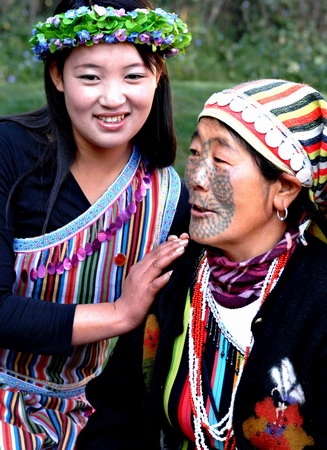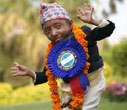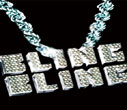Special
A new world opens to Derung tribes
By Li Qian (chinadaily.com.cn)
Updated: 2008-01-10 16:01
|
|
In the mountains of Southwest China's Yunnan Province lives one of China's least known and smallest ethnic groups, the Derung people. They have a population of around 5,000 and are named after the fast-moving river called Derung which gushes from the Qinghai-Tibet Plateau into the valley where they live.
Enclosed by several mountains, the Derung villages are inaccessible for more than half a year due to heavy snow.
The Derung have their own traditions passed on orally and through practice, as they don't have a written language. But the most distinct feature of the people is quickly fading -- girls don't tattoo their faces any more.
The custom was practised when a girl turned 12- or 13-years-old. An older woman would first paint the girl's face with soot using a bamboo stick. And then she tatooed the skin by puncturing it with a sharp bamboo stick and then dabbing the wound with more soot and a herb extract. The red swelling disappears after a week, leaving a permanent dark blue design on the skin.
The practice was controversial even among their own people. Today the tattoos, mostly with a butterfly pattern, are no longer deemed beautiful. As a result, only 64 Derung women have these tattoos today, the oldest of them aged 108 and the youngest 50.
In 2004 a telecommunication signal emitter was built in the village, and since then, the world of the Derung tribe has opened them to the outside world, enabling them to communicate with people outside their village by talking or sending short text messages through their mobile phones.










